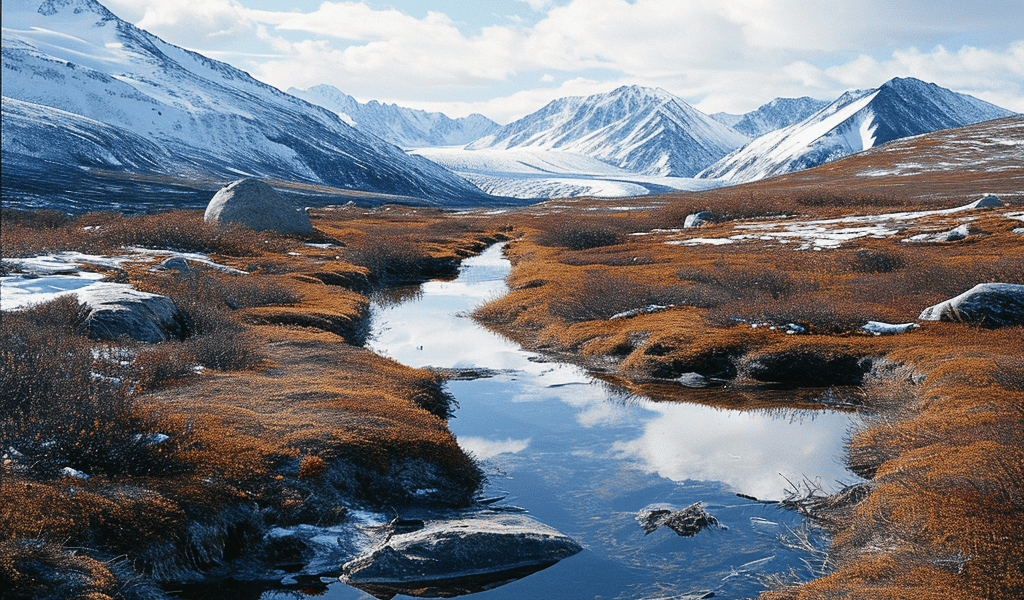Alaska is facing the brunt of climate change, with rapid warming leading to the thawing of permafrost in the state’s interior. This thaw not only releases stored carbon into the atmosphere, exacerbating rising temperatures but also triggers decomposition, potentially impacting above- and below-ground food webs.
A recent study published in the journal Nature Climate Change by Philip Manlick, a research wildlife biologist with the USDA Forest Service Pacific Northwest Research Station, along with collaborators from the University of New Mexico and the University of Texas at Austin, delved into the effects of climate change on energy flow and carbon fluxes in high-latitude food webs. The study focused on the tundra vole, a key species in Arctic and boreal ecosystems, to understand the ecological implications of permafrost thaw.
The researchers employed a novel technique involving the measurement of unique carbon isotope ‘fingerprints’ in essential amino acids produced only by plants, bacteria, and fungi. By tracking the movement of carbon between green and brown food webs using these biomarkers, the study detected significant changes in energy flow and carbon fluxes.
Manlick emphasized the importance of understanding how energy moves through food webs to comprehend ecosystem function and animal responses to stressors like climate change. The warming climate and flourishing microbes in Arctic and boreal ecosystems have raised concerns about their impacts on terrestrial food webs and the species they support.
The findings shed light on the intricate relationships within high-latitude food webs and the potential disruptions caused by permafrost thaw. As climate change continues to shape the environment, studies like this provide valuable insights into the ecological consequences and help in devising strategies for conservation and management.





